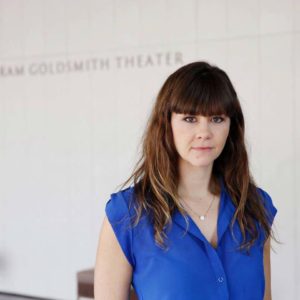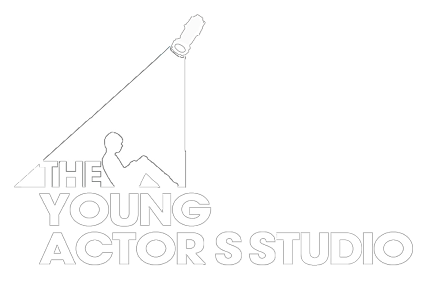- Feel free to contact us with any questions!
- 818-210-3821
- office@youngactorsstudio.com
ABOUT BEKAH BRUNSTETTER
Bekah Brunstetter hails from Winston-Salem, North Carolina, and currently lives in Los Angeles.Plays include Going to a Place where you already are (South Coast Rep Commission), Cutie and Bear (Roundabout Commission) A Long and Happy life (Naked Angels Commission), Be A Good Little Widow (Ars Nova, Collaboraction, The Old Globe), Oohrah! (The Atlantic Theater, Steppenwolf Garage, the Finborough Theater / London), Nothing is the end of the World (except for the end of the world) (Waterwell productions), House of Home (Williamstown Theater festival) and Miss Lilly Gets Boned (Ice Factory Festival.)She is an alumni of the CTG Writers Group, Primary Stages writes group, Ars Nova Play Group, The Playwright’s Realm, and the Women’s Project Lab.She has previously written for MTV (Underemployed; I Just want my Pants Back) and is currently an Executive Story editor on ABC Family’s Switched at Birth.BA UNC Chapel Hill; MFA in Dramatic Writing from the New School for Drama.

What is a particularly helpful piece of advice you’ve gotten as a writer? Or you’ve heard/seen others receive?
I just read this fantastic interview by the great Marsha Norman (‘Night, Mother). I really admire the long game of her career – she writes beautiful plays, and movies, and books for musicals, and has discovered tons of young playwrights / helped them hone in on their voices at the Julliard school. One time, I at shrimp cocktail at her apartment, which was wall to wall filled with books. It was very exciting. In this interview, she says that all good playwriting starts with a fear. Fear is such a primal and visceral feeling. I am currently feeling a lowgrade version of the feeling, as I’m answering this question while on a plane. (While flying, I like to keep the thought that the plane might crash somewhere closeby, just so that it won’t, because that would be too ironic, right? RIGHT?!) She goes onto advise that just the fear itself provides the emotion, but not necessarily the story – and so a great play combines fear with something else. Fear plus loss. Fear plus Love. Fear plus money. Etc etc etc. I thought this was such a clear and brilliant way to boil down the elements of a great play.
Can you describe a theater moment that particularly inspired you?
Like what is surely a lot of playwrights, I think that Our Town is one of the greatest plays that has ever lived. I want to go back in time and have written it, I want to live a hundred years into the future and keep re-writing it. I think that every playwright should write their own version of Our Town, and set it in their hometown, and center it around the big questions they ask themselves daily. (I did this is my play House of Home. I now have a 27 character play that will probably never see the light of day again, but it might be my favorite play I’ve ever written.) And so, a moment from a play that I’m always thinking of is of course from a production of Our Town. David Kromer’s, which started in Chicago then ran in NYC, then in LA. The first hour and a half or so of the production were incredible spare. No costumes. Actors wore contemporary rehearsal clothes. Converse high tops. Full stage lights. At first I was annoyed, and longed for some sort of spectacle, but I quickly realized how the simplicity of the design was forcing me to focus intently on what the characters were saying to each other. And I heard and understand the scenes more deeply than I ever had. And then – AND THEN – towards the end of the play, when Emily is looking back on her Life (SPOILER Y’ALL / SHE DIES) – suddenly, the smell of bacon overwhelmed the theater. And suddenly – the back wall to the theater moved, revealing a BEAUTIFUL AND INTRICATE SET. Emily’s house, containing her mother and father and brother – table and stove and chair – with actual breakfast cooking. It was a real life rendering of what we had been imagining the whole play – and Emily wasn’t able to fully see it, appreciate it, take it in, until she was dead. We as the audience felt that with her. Looking back on life after death. Finally seeing and appreciating the detail posthumously. A simple design decision made the play profoundly relevant. Revitalized it. It was beautiful.
Who are some current playwrights we should know about?
Being a found member of the Kilroys (an advocacy group that is fighting for gender parity in the theater) I can’t help but lead with some women and trans* writers who are doing some incredible work right now. I’ll start with Ruby Rae Speigel, whose play Dry Land is stunning. She wrote it WHILE STILL IN COLLEGE. It is deeply honest and authentic and I think a great play for a young writer to read – the things that are happening to and around you right now are your plays. Other greats: Clare Barron, Madhuri Shekar, Mary Laws, Janine Nabers, Sofia Alvarez, Alena Smith, Jen Silverman, Sylvan Oswald, Jihae Park, Hansol Jung. And onto the bro’s: Jon Caren, Sam Hunter, Nick Jones, Christopher Oscar Pena, Brandon Jacob Jenkins. Get thee to the Sam French bookstore!!!
What do you look for in a collaborator/director?
Honestly, first and foremost, I look for someone I want to hang out with. Someone I would want to go for a long walk with and just talk about nothing and everything with. Someone I would want to eat a sandwich with. Someone I’m comfortable being quiet with, or dancing my face off with. For me, making a play is hugely about friendship. That’s definitely how it started for me – I started doing theater to make friends, and then ended up making plays with the friends I found there. And so, I like to start working on a play from a place of a bunch of people who like each other, hanging out. It shouldn’t feel like work. Sometimes it is work, of course, but at its core, it should feel organic and fun. Secondly, I look for someone who won’t just tell me what I want to hear. Someone who will ask me hard questions, who will be honest with me when something isn’t working, who won’t let me get away with lazy writing.
Can you recall a particularly memorable playwriting class/lab/workshop? What made it resonate for you?
I remember my first week or so of grad school, a teacher had us free-write for an hour, starting with ‘a feeling.’ It seemed absurd. My hand hurt. She would bark at us if our pencils stopped. We kept writing and writing. I kept thinking, this is pointless, this writing is no good, what is this even for? Finally I turned that part of my brain off and just wrote gross pathetic stuff from my gut. I stopped judging what I was writing and I just wrote. After the free-write, we then had to take an element from it and turn it into a play. I sifted back through the vomit and focused on this idea that I was missing half of myself. I was still fresh off of a lost love, my first boyfriend, and I wasn’t really dealing with that. I felt him there, still, like a phantom limb. The first time you get your heart broken is when you drop further into your self. It’s when you realize that movies aren’t real and that life is imperfect and people can be cruel. That you can be cruel. And so I started a play about a recently separated pair of Siamese twins, which then became my play Arms.I always think about that free-writing session because I am always trying to remind myself to let things be terrible. As long as there is one salvageable thing, it’s worth it. (More on this in Anne LaMott’s Bird by Bird which every writer should definitely read.)
What is something you’ve encountered (not necessarily a play) that has inspired you as a writer?
Recently, for a change of scenery, I went to write in the library by my house. (NOTE: change your place / change your mind. If you are feeling stuck, you literally need to move. Grab your notebook or computer, and just park it somewhere you’ve never been. Could be a three hour drive, could be up the street, just go there. And observe. Listen. Taking in a new environment restarts your brain.) As I was settling into work, I couldn’t help but overhear an old man talking to the librarian. He was asking for a certain book by a certain writer. The librarian told him she looked, and there wasn’t a single book by the writer in the whole system. The man got upset. Surely, there must be something by him. The librarian started to get impatient, which upset the man even more. There must be something! It made me feel incredibly sad, probably because I decided in that moment the writer the old man was looking for was either himself or a dead lover or friend. And suddenly I had the beginning of a new play, which I then started to write. Sometimes when you’re stuck with one play, another one just walks up to you and sits on your lap, or stands across the room shouting at the librarian until you notice it.
